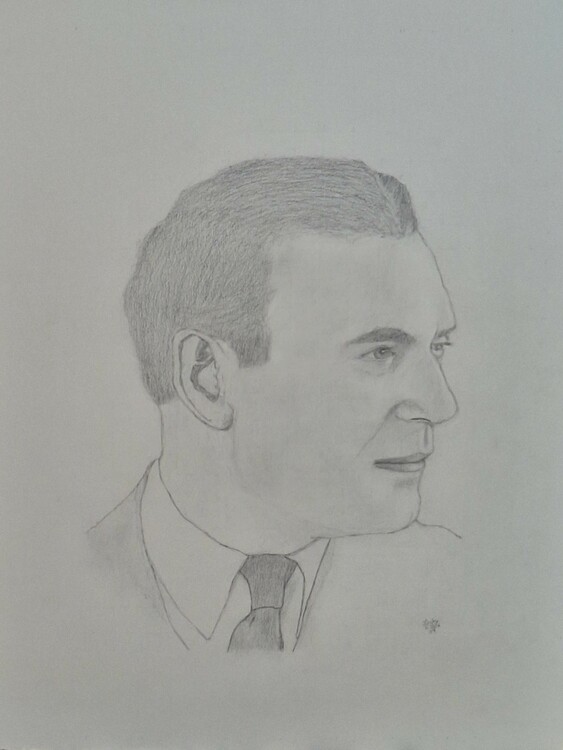
Michael Michalesco
Michael Michalesco was born in 1888 in the Kherson region of the Ukraine. His father was a scholar and a man of great distinction. However, his parents passed away when he was young, and he was raised by his grandfather.
As a child he possessed an alto voice, and even though he did not like the cantors of the local synagogue, he began as a choir boy. After an initial encouragement, he began to sing on High Holidays with cantors, and herein became a choir boy on a regular basis.
At the age of twelve he played "Joseph" in the play, "Joseph and his Brothers," in a private home with the local "amateurs.”
He was heard by a musician during a singing lesson in a Russian evening school, and through him, Michalesco then entered into the chorus of the local Russian musical school that staged "Romeo and Juliet." But in order to earn a livelihood, he stopped his lessons and became busy with various artisans. After participating in the play, "Bar Kochba," in an amateur production, he was taken into a guest-starring Yiddish troupe of the actor Zhitomirski.
A year later he crossed over to another troupe, then to other troupes, playing as the “second lover,” or in character-comic roles.
For the next ten years he acted with various Yiddish troupes in Warsaw, then again in Russia with other troupes. He returned to Poland in 1912 and acted there in Warsaw in a series of operettas during the years of the First World War.
In 1920 he went to London, and from there to America, where he was engaged for the 1920-1921 season with Boris Thomashefsky in his National Theatre in New York City.
He continued at the National Theatre for two seasons, then crossed over to Kessler’s Second Avenue Theatre, where he acted for a couple of seasons in such plays as “The American Rabbi’s Wife,” “Stronger than Love,” and the operetta, “The Golden Bride.”
For two seasons, beginning in 1924, Michalesco starred in Brooklyn’s Liberty Theatre, where he both directed and acted in the main roles in a number of productions, both in operettas and melodramas, such as in the plays, “Sweet Love,” “Alone in the World,” and “Student Love,” which ran for twenty-two weeks.
He then managed a Yiddish theatre in Chicago from 1926-1928, and then returned to New York, where he was engaged to the newly founded Rolland Theatre in Brooklyn, New York.
In the summer of 1929, he traveled to Paris where he played in a Yiddish theatre house.
He continued to star in Yiddish theatre over the coming years, in such theatres as the National, Prospect and Public Theatre.
In the span of many years acting in America, Michal Michalesco also had various opportunities to perform in such classic plays as, "Hershele Dubrovner," Gordin's "God, Man and Devil,” in "Hamlet" by William Shakespeare, in "Shloimke sharlatan" by Jacob Gordin, and in "The Witch" by Abraham Goldfaden.
It is written in a 1957 article in the New York Times the following:
"Mr. Michalesko, a native of Russia, made his first stage appearance at the age of twelve. He played in theatres in Russia, Poland, South America, and in London and Paris.
He was brought to the United States by the late Boris Thomashefsky and made his debut here in 1921.
He appeared in Yiddish operettas in Brooklyn, the Bronx and the Lower East Side of Manhattan.
With Alexander Olshanetsky and Louis Goldberg, he leased the Public Theatre at Second Avenue and Fourth Street in 1931 for use as a legitimate Yiddish playhouse.
He also established a Yiddish stage at the Wilshire-Ebell Theatre in Los Angeles in 1952."